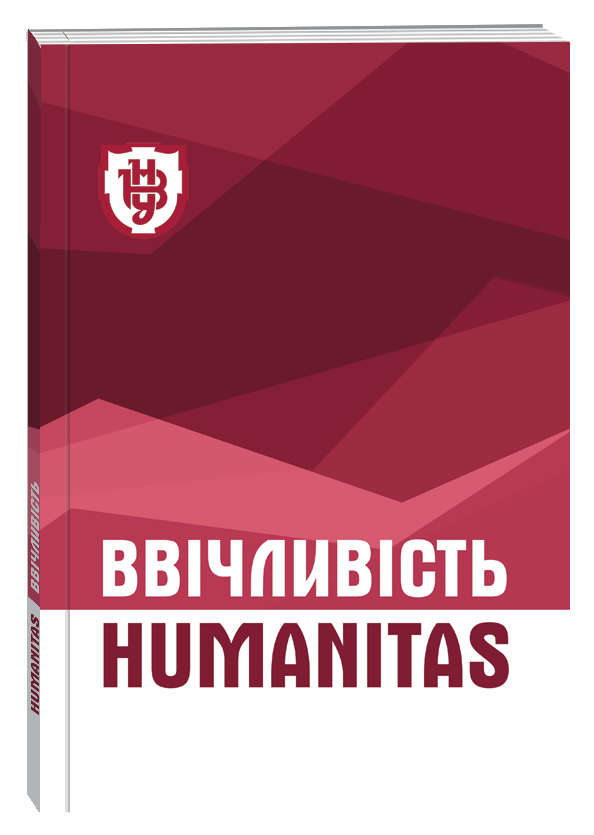COACHING APPROACHES IN MODERN TECHNOLOGIES OF SOCIAL AND PEDAGOGICAL SUPPORT FOR YOUTH: TUTORING, MENTORING AND ADVISEING
DOI:
https://doi.org/10.32782/humanitas/2022.5.1Keywords:
adviser, coaching, coaching approaches, New Ukrainian School, mentor, mentorship, socio-pedagogical support, tutor, tutor supportAbstract
The article analyzes additional challenges facing Ukrainian youth in the context of the pandemic and full-scale: a sense of tension and anxiety, a critical lack of "live" communication, permanent stress, the unsuitability of the school curriculum to online learning and the need to revise it, and considers the ability of existing technologies of socio-pedagogical support to promptly and qualitatively respond to them. The author argues in favor of finding new technologies of socio-pedagogical support, which would meet the requirements stated in the "New Ukrainian School" concept regarding the construction of an individual educational trajectory, education based on values and realization of individual abilities and inclinations of each child. Modern mentoring tools are considered as an alternative to classroom management and supervision: tutoring and/or mentoring support technologies, as well as the advising institute developed at Creative International School for Children. It is noted that thanks to the introduction of the author's technology of tutor support for the social development of schoolchildren, a reduction in the number of children with an initial level of social development was achieved, a significant increase in the number of children with a moderate level of social development in the experimental group, a reduction in the number of children with a high index of general aggressiveness and a tendency to open aggression. Instead, the number of schoolchildren with a high level of formation of the ability to process social information, to social interaction in a group of peers, to social reflection has increased. The result of the success of the mentoring technology implemented in the Ukrainian Academy of Leadership is the correspondence between the values formed in students during their studies and their behavior. It is noted that the commonality of the three technologies of socio-pedagogical support described above lies in their application of coaching approaches and tools. In particular, each of the technologies places special emphasis on goal-setting and goal-setting, as well as motivational support of the student of education as a client of socio-pedagogical support.
References
Альохін М. М. Поведінковий контракт як інноваційний метод тьюторського супроводу соціального розвитку молодших школярів. Гуманітарний корпус. 2021. Вип. 37-2. С. 81-83.
Альохін М. М. Тьюторський супровід соціального розвитку молодших школярів у приватних закладах освіти України : дисертація на здобуття наукового ступеня доктора філософії : 231 Соціальна робота. Київ, 2021. 313 с.
Антонюк О. Використання освітнього коучингу для зменшення навчального стресу та посилення академічної мотивації студентів під час війни: теоретичний аспект. Український Педагогічний журнал. 2022. № 3. С. 44-54.
Бех І. Д. Духовно-моральна безпечність-напруженість у психологічній безпеці особистості. Вісник Національної академії педагогічних наук України. 2021. № 3(1). С. 1-4.
Бойчук О. Актуальні проблеми онлайн-навчання в Україні. Цифрова платформа: інформаційні технології в соціокультурній сфері. 2021. № 4(1). С. 31-41.
Галімов Е. Р. Ціннісні орієнтації студентів Української академії лідерства: структура і зв'язок з поведінкою : кваліфікаційна робота на здобуття освітнього ступеня бакалавра : 054 Соціологія. Київ, 2020. 84 с.
Кравченко О., Бобриньова, С. Нова соціальна та освітня реальність в умовах ізоляції. Теоретико-методичні проблеми виховання дітей та учнівської молоді. 2021. № 25(1). С. 174-189.
Мельник М. Ю. Дослідження обізнаності та ставлення педагогічної спільноти, здобувачів освіти та батьків до діагностики й супроводу розвитку обдарованої особистості. Київ: Інститут обдарованої дитини НАПН України, 2021. 52 с.
Мельник М. Ю. Освіта в умовах воєнного стану: результати опитування. Вісник Національної академії педагогічних наук України. 2022. № 4(1).
Менторинг особистостей. Київ : Українська академія лідерства, 2021. 89 с.
Петрощук Н., Матвійчук О., Карчина Л. Проблеми становлення дистанційного навчання в Україні (за матеріалами соціологічного дослідження). Науково-педагогічні студії. 2021. № 5. С. 53-65.
Сівчук П. І. Соціально-психологічні проблеми дистанційного навчання. Розвиток професійної майстерності педагога в умовах нової соціокультурної реальності: збірник матеріалів ІV Міжнародної науково-практичної конференції, м. Тернопіль, 15-16 квітня 2021 року. Тернопіль: Тайп, 2021. С. 396-398.
Трішин Ф., Дец Н., Ланженко Л. Проблеми дистанційного навчання та шляхи їх усунення. Забезпечення якості вищої освіти: підвищення ефективності використання інформаційних технологій у здійсненні освітнього процесу: збірник матеріалів ІІІ Всеукр. наук.-практ. конф., м. Одеса, 14-16 квітня 2021 року. Одеса : ОНАХТ, 2021. С. 3-14.
Чубук Р. В. Коучінг як інноваційна форма управління соціально-педагогічною роботою зі студентською молоддю. Наукові записки НДУ імені М. Гоголя. Психолого-педагогічні науки. 2009. № 6. С. 143-146.
Clifton D. O., Harter J. K. Strengths investment. In K. S. Cameron, J. E. Dutton, & R. E. Quinn (Eds.), Positive organizational scholarship. San Francisco: BerrettKoehler, 2003. 111 р.
Schreiner L. A., Anderson Е. Strengths-Based Advising: A New Lens for Higher Education. NACADA Journal. 2005. № 25(2). р. 20-29.







